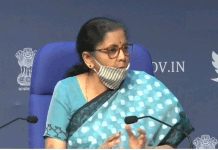This years budget failed to work in favour Of salaried class people and tax payers. Although there were some sections of people such as senior citizens who gained a lot from this proposal. May it be anything but the tax payers are suggested to stay aware of the tax proposals of this years Union Budget which would definitely affect a persons earning and the day to day life.

Here are 10 tax rules which will change from 1st April.
Taxability of single premium health insurance policies:
This years Union Budget has suggested that the deduction should be permitted on the proportionate basis for as many years for which the cover has been provided, subject to the specified monetary limit.
Exemption from the taxation of long term capital gains invested in specified bonds:
Deduction under section 54EC is available in respect of capital gain, that arises by transferring a long-term capital asset, invested in the long-term specified asset at any time around a period of six months after the date of such transfer. Long-term specified asset means any bond, redeemable after three years and issued on or after the 1st day of April, 2007 by the National Highways Authority of India (NHAI) or by the Rural Electrification Corporation Limited (RECL).
Taxability of Long-Term Capital Gains on equity shares:
The Budget announced this year has proposed 10% tax on the long-term capital gains (LTCG) arising out of the sale of equity-oriented mutual fund (MF) schemes as well as equity shares, if the capital gains exceed Rs 1 lakh in a year. Not only this but also no advantage would be given for indexation.

Extending the benefit of tax-free withdrawal from NPS:
Currently, an employee contributing to the National Pension System (NPS) is allowed an exemption in respect of 40% of the total amount payable to him on closure of his account or on his opting out. This exemption was not available to non-employee subscribers. Now this years Budget proposes to extend the pre defined advantage to all NPS subscribers.
Compensation on termination or modification of employment:
Currently, certain compensation in connection with employment is out of the purview of taxation, leading to base erosion and revenue loss.
Enhanced deduction for health insurance, medical expenditure related to senior citizens (Section 80D):
Under the existing provisions, a maximum deduction of Rs 30,000 is allowed to an individual or HUF for payment towards health insurance premium including Rs 5,000 towards preventive health check-up for resident senior citizens. Alternatively, very senior citizens can claim a deduction of Rs 30,000 for payment towards medical expenses where there is no insurance. The Budget 2018 has proposed a maximum deduction of up to Rs 50,000. Besides senior citizens can also claim the deduction for medical expenditure.
Medical treatment of senior citizens for specified diseases (Sec 80DDB)
Under the existing provisions, deduction is available to resident individuals and Hindu Undivided Family (HUF) for any amount incurred for the medical treatment of specified diseases (i.e. malignant cancers, AIDS, etc). The deduction is limited to Rs 60,000 for expenses relating to senior citizens and Rs 80,000 with respect to very senior citizens. The Budget has proposed to enhance the above deduction limit to Rs 100,000 uniformly for both categories.









